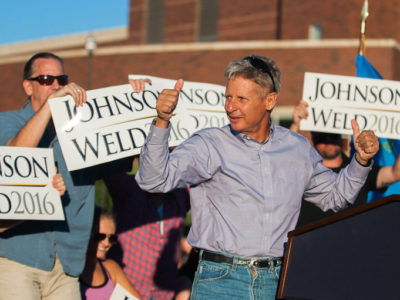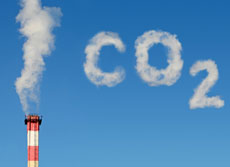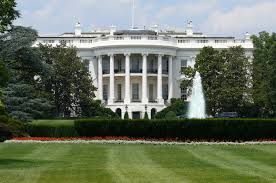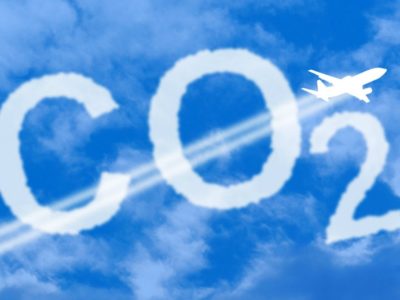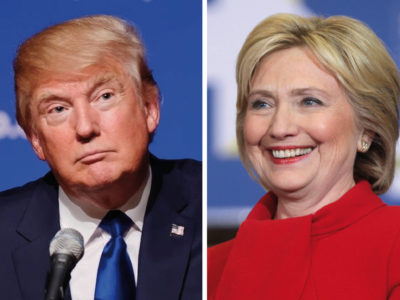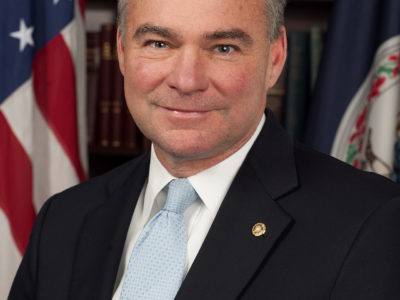Climate Change
Libertarian Candidate Endorses a Carbon Fee
Gary Johnson has put his weight behind
In an interview in Alaska, Gary Johnson endorsed the idea of a fee on carbon emissions. Here’s what he had to say, according to E&E News: “Johnson described his “free market approach” to global warming to the Juneau Empire in an interview published this weekend. He said his plan would include a fee, “not a …
Continue reading “Libertarian Candidate Endorses a Carbon Fee”
CONTINUE READINGA Small-Government Approach to Pricing Carbon
We can impose a price on carbon without a tax or emissions trading. Here’s how.
Cap and dividend is a politically appealing idea; put a price on carbon, then refund the money to consumers in equal shares. But conservatives and libertarians object to this idea on two grounds. First, cap-and-trade systems are complex and require a lot of regulatory oversight. Second, if the government collects the money, despite its current …
Continue reading “A Small-Government Approach to Pricing Carbon”
CONTINUE READINGWhat Threatens Biodiversity?
Are we too worried about climate change to focus on the other problems we know about?
Yesterday, Nature published a noteworthy comment on the biodiversity crisis, written by researchers at the University of Queensland and the International Union for Conservation of Nature (IUCN). The piece is based on a study of 8,688 species that are classified on the IUCN’s Red List either as threatened (vulnerable, endangered, or critically endangered) or near-threatened. The main …
Continue reading “What Threatens Biodiversity?”
CONTINUE READINGA Darker Shade of Green
Jill Stein and her party call for a 40% cut in U.S. carbon emissions in the next four years.
Although the Green Party doesn’t seem to be pulling a lot of voters at this point, it seems only fair to include them in the roundup of the parties’ environmental positions. As you could infer from the name, the Green Party puts a very high priority on environmental quality. Interestingly, the current party platform is dated …
Continue reading “A Darker Shade of Green”
CONTINUE READINGCalifornia Governor Jerry Brown Launches Initiative Effort to Achieve Climate Change Goals
Governor Brown Decides to Play Offense in High Stakes Political Battle Over Next Stage of State Climate Change Mitigation Efforts
One of 2016’s biggest political battles in California is over whether and how the state will pursue its ambitious climate change mitigation goals past the year 2020. California’s landmark Global Warming Solutions Act–better known as AB 32–committed California to roll back aggregate state greenhouse gas emissions to 1990 levels no later than 2020. Through the …
CONTINUE READINGThe New NEPA Guidance
The new guidance on climate change is a step forward, though it could have been stronger.
The White House Council on Environmental Quality (CEQ) issued new guidance today on considering climate change in environmental impact statements. Here are the key points: Quantification. The guidance recommends that agencies quantify projected direct and indirect emissions, using the amount of emissions as a proxy for the eventual impact on climate change. The EIS should also …
Continue reading “The New NEPA Guidance”
CONTINUE READINGThe Aviation Endangerment Finding
While we are watching the political conventions, EPA took an important step forward
Last Monday, EPA issued a formal finding that carbon emissions from commercial aviation endanger human health and welfare. Understanding the significance of the finding requires a little background. Section 231(a)(2) of the Clean Air Act directs the EPA Administrator to “issue proposed emission standards applicable to the emission of any air pollutant from any class …
Continue reading “The Aviation Endangerment Finding”
CONTINUE READINGA Clash of Visions
The two parties couldn’t disagree more about energy policy.
In every election, there are people who claim that both parties are alike. That’s certainly not true about energy policy this year.The distance between the tickets can be expressed numerically: Kaine has a 91% lifetime score of from the League of Conservation Voters, while Pence’s is 4%. And the differences between the presidential candidates are equally …
Continue reading “A Clash of Visions”
CONTINUE READINGTim Kaine and the Environment
Despite some blemishes, he deserves strong support from environmentalists.
I reported last week on Mike Pence’s environmental record. This week, Tim Kaine is the one in the spotlight. Only a few minutes ago, Clinton announced that he was her choice – pretty much what the press had predicted for the last day or two. Environmentalists have a lot of reason to be happy about …
Continue reading “Tim Kaine and the Environment”
CONTINUE READINGCalifornia’s Cap-and-Trade Program After 2020
ARB publishes draft climate regulations that would extend the program
Against a backdrop of complex Sacramento politics on the future of California’s climate regulation, the state’s Air Resources Board last week issued an initial draft of regulations that would, among other things, extend the cap-and-trade program beyond 2020. Does ARB currently have the authority to do that? Yes, probably. But it’s complicated enough to leave room for disagreement. Here’s one version …
Continue reading “California’s Cap-and-Trade Program After 2020”
CONTINUE READING



